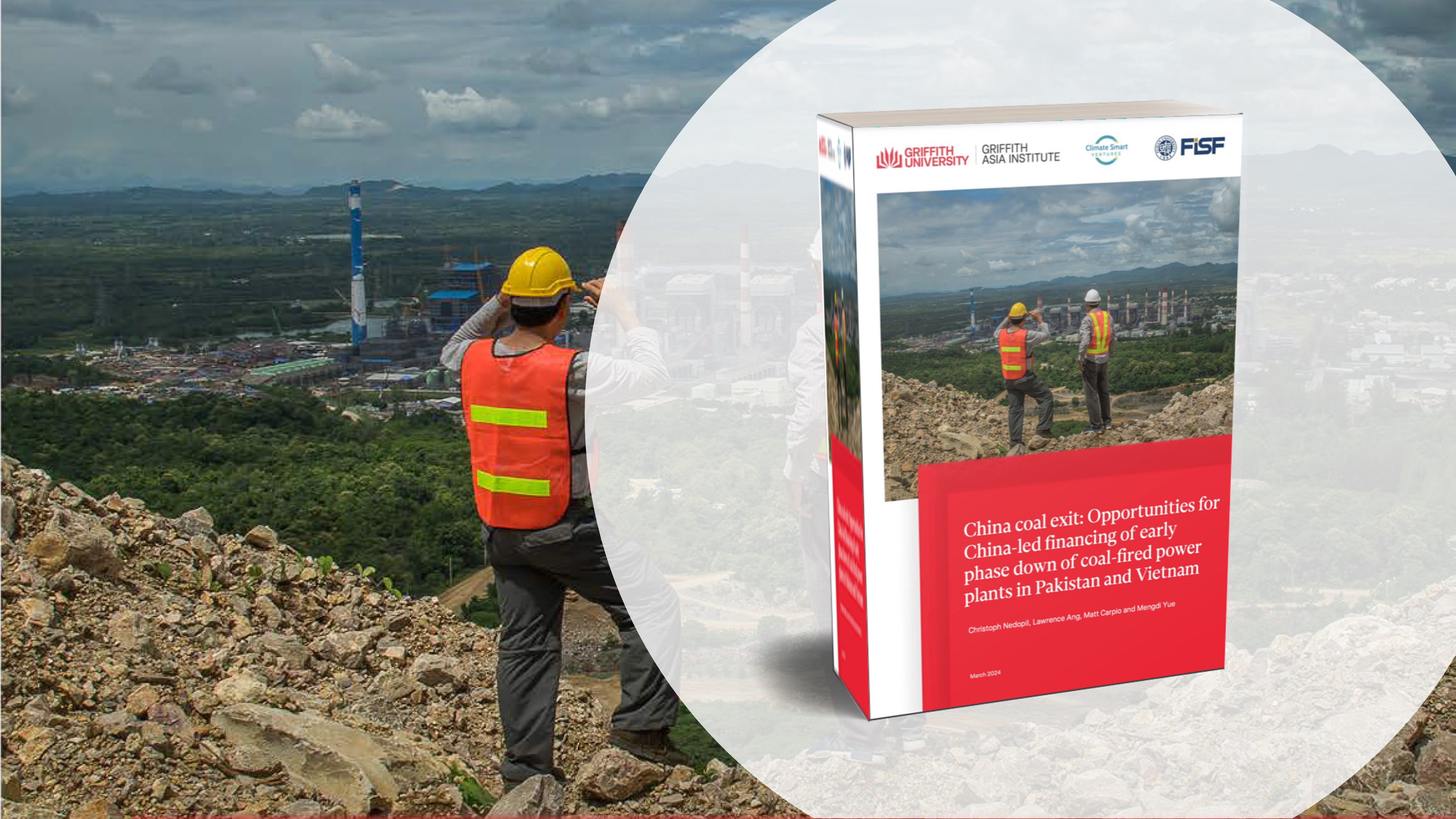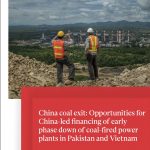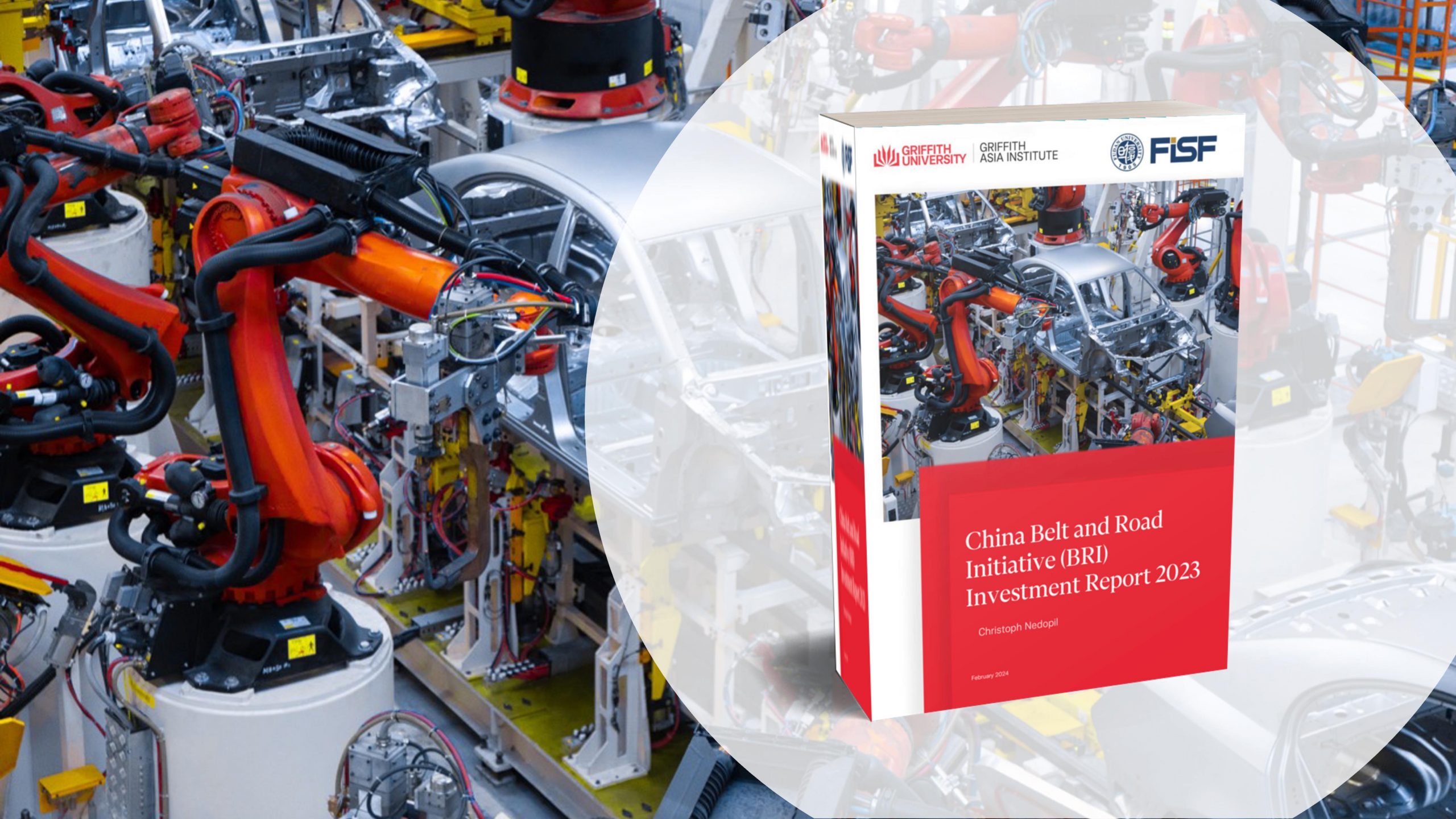The study “China coal exit: Opportunities for China-led financing of early phase down of coal-fired power plants in Pakistan and Vietnam” evaluates the financial impact of early retirement of coal-fired power plants (CFPPs) in Asia, specifically focusing on six Chinese-sponsored plants in Pakistan and Vietnam.
The research was conducted by the Griffith Asia Institute in collaboration with the Green Finance & Development Center and Climate Smart Ventures, and supported by the Coal Asset Transition Accelerator (CATA).
The study’s findings challenge the common assumption that young CFPPs in Asia are difficult to retire due to their age, suggesting that early retirement can actually increase the enterprise value of these plants, particularly when combined with renewable energy investments:
Increase in Enterprise Value with Early Retirement:
- The study’s financial modeling for all six plants in Vietnam and Pakistan shows an increase in enterprise value when asset/portfolio refinancing is applied to facilitate early retirement.
- This finding indicates that early retirement could be financially beneficial for investors, contrary to the belief that it would be costly due to the young age of the plants.
Tripling Enterprise Value with Renewable Energy Investments:
- When asset refinancing is bundled with investments in renewable energy, the enterprise values of the CFPPs could more than triple compared to the value under the original power purchasing agreement (PPA).
- This suggests a significant financial incentive for investors to consider early retirement of CFPPs and reinvestment in renewable energy.
Financial Benefits for Investors:
- The study concludes that investors could financially benefit from the early retirement of CFPPs.
- This is particularly true for younger plants, which can retire earlier due to higher relative debt burdens and financing costs in the early years of operation.
Feasibility of Early Retirement for Younger Plants:
- Younger CFPPs have a higher feasibility for early retirement because they have not yet recouped their initial investments, making the financial gains from early retirement more attractive.
- In Pakistan, with its very young CFPPs, refinancing would allow the retirement of three plants seven to nine years ahead of schedule while improving enterprise value.
Recommendations for Chinese Companies and Financial Institutions:
- The study recommends that Chinese companies and financial institutions engaged in overseas CFPPs consider reducing their exposure by shifting to renewable energy investments.
- It suggests that enterprise value and the feasibility of CFPP retirement would improve with the use of concessional loans, credit enhancement mechanisms, and innovative financing instruments such as debt-for-climate swaps involving Chinese CFPP sponsors.
The study’s approach to evaluating the financial implications of early CFPP retirement under different financing and economic scenarios provides valuable insights into how the transition from coal to renewable energy can be accelerated in a financially viable way for investors. The results indicate that early retirement, particularly when combined with renewable energy investments, could be a win-win situation, offering financial returns to investors while contributing to the global energy transition.
Data Collection and Presentation:
Data for the study were collected as of January 2023, and the analyses and discussion were drafted in the third quarter of 2023. The results were first presented publicly during the World Energy Forum in November 2023.
It is noted that the findings may change with new national policies, financial, and economic conditions.








Comments are closed.